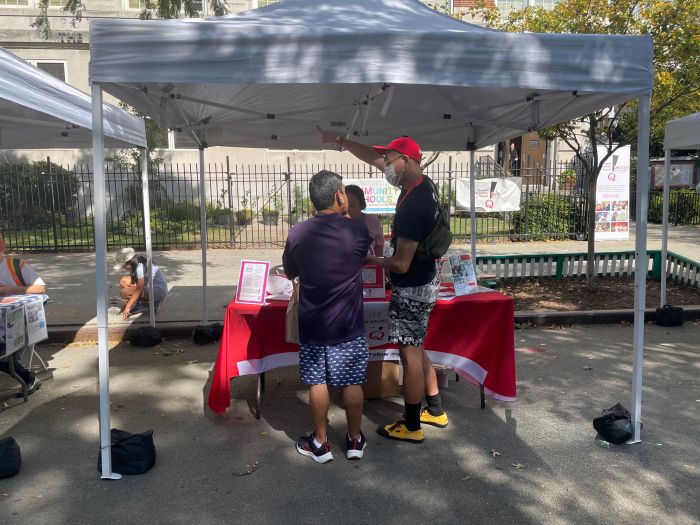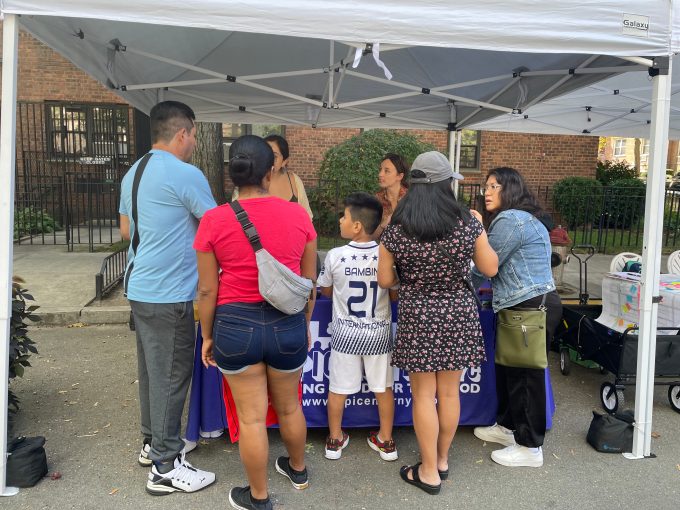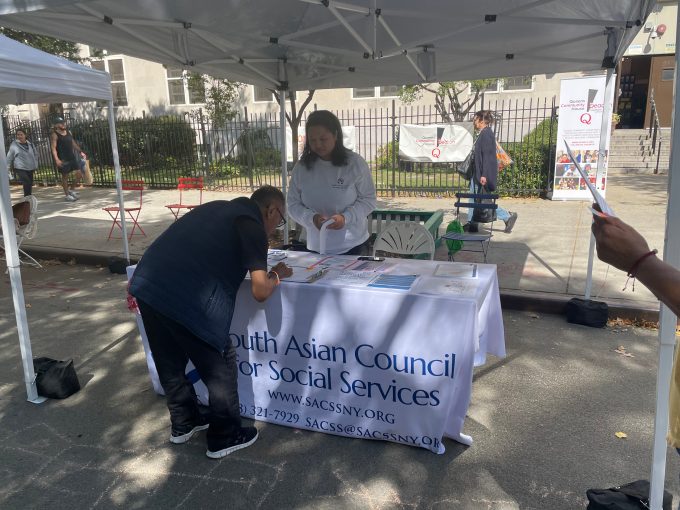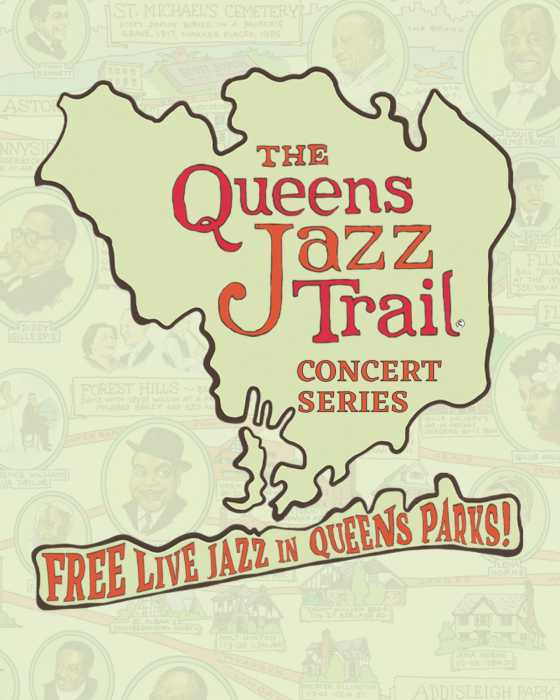
Council Member Shekar Krishnan (left) with NYLAG’s Jodi Ziesemer (center) and NYIC’s Kaija Groom.
Sept. 24, 2024 By Shane O’Brien
Around 400 people gathered at the New York Immigration Coalition’s (NYIC) Key to the City event in Jackson Heights on Saturday.
The event aimed to connect New York’s immigrant community with organizations offering essential services and information.
Held at Paseo Park/34th Ave Open Street on Sept. 21, the event featured more than a dozen organizations advocating for immigrants and asylum seekers in New York City. Attendees had access to information and services from nonprofits specializing in education, healthcare, and immigration law.
Among the organizations to take part in the event were Asian Americans For Equality, South Asian Council for Social Services, Immschools, Libertas Center for Human Rights, Jackson Heights Immigrant Center and Charles B. Wang Community Health Center. The New York Legal Assistance Group (NYLAG) also provided immigrants and asylum seekers with free consultations on a range of issues, including filing petitions for family members, preparing for immigration court hearings and how to apply for citizenship.

Photo: New York Immigration Coalition
Saturday’s Key to the City event was NYIC’s kickoff event for the 2024/25 year, with several more Key to the City events scheduled to take place across the city over the coming months.
Participants on Saturday were provided with free meals and essential products, including school supplies for the new school year.
Varvara Chinenova, statewide service coordinator with NYIC, said Key to the City events are crucial for members of the immigrant community because they provide immigrants with access to vital services in their own neighborhood, also ensuring that the information is available in their own language.
“We make sure that we tailor our resources accordingly so that they’re culturally and linguistically accessible,” Chinenova said. “It’s very important for us to provide safe and welcoming spaces for our community, so we often partner with libraries, community centers, schools to make sure that people feel comfortable and welcome.”

Photo: NYIC
Council Member Shekhar Krishnan added that Key to the City events are important because they provide a “one-stop shop” for immigrants to access vital services, removing many of the barriers to access associated with traveling long distances and digesting information in a language they are not familiar with.
“If services are far-flung all over the city and asylum seekers and immigrants are coming here and don’t know how to access them and don’t feel like the services are offered in their languages, that’s a barrier in itself,” Krishnan said. “Key to the City eliminates those barriers. It brings all the services to our community.”
Jodi Ziesemer, co-director of the immigrant protection unit at NYLAG, said the organization prides itself on taking part in the Key to the City events, stating that NYLAG possesses the cultural and linguistic capacity to help immigrants of a variety of different backgrounds.
“People don’t have to travel downtown during work hours to meet with a lawyer,” Ziesemer said. “They can come to their own community on a Saturday and receive resources.”

Photo: NYIC
Maria Rocha-Carrillo, a senior program associate at ImmSchools, a non-profit supporting undocumented children and families, said Key to the City events not only provide ImmSchools with an opportunity to connect with immigrant families but also provide the organization with a chance to connect with other organizations and non-profits advocating for New York’s immigrant community.
“It’s a great way for us to come together and provide free resources. It’s important for immigrants to connect with organizations that they are in need of. We all provide different resources in various languages because we all believe in language justice,” she said.
Chinenova said NYIC translates all of its resources into 15 different languages, including the 15 most-spoken languages in New York City. She added that NYIC also provides language-accessible resources for the most commonly spoken languages in the neighborhoods where Key to the City events are being held.






